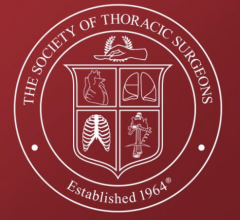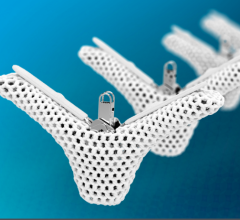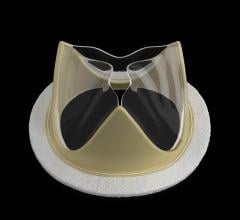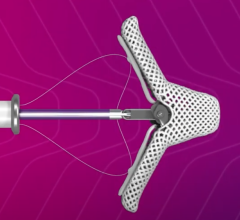
June 3, 2013 — Medtronic Inc. announced it has received CE mark for valve-in-valve (VIV) procedures using the CoreValve and CoreValve Evolut transcatheter aortic valve implantation (TAVI) systems in degenerated bioprosthetic surgical aortic valves. This is the first regulatory approval for VIV procedures, which provide a minimally invasive treatment option for patients whose surgical aortic valves have degenerated, and who are at extreme or high risk for surgery and would otherwise go untreated. The CoreValve VIV procedures are not approved in the United States.
Results from the largest global VIV registry, published in Circulation in November (“Transcatheter Aortic Valve Replacement for Degenerative Bioprosthetic Surgical Valves: Results from the Global Valve-in-Valve Registry”), showed the VIV approach resulted in considerable hemodynamic (blood flow) improvements, including a decrease in valve gradients (blood flow resistance). Positive procedural outcomes were maintained at one-year follow-up (with 89 percent survival at one year), which was comparable with other non-VIV TAVI studies.
“While surgical valves provide effective therapy for many patients, the replacement valves eventually degenerate over time, so VIV has become a topic of great clinical interest due to the needs of these patients,” said Ran Kornowski, M.D., chair of cardiology at Rabin Medical Center and Tel-Aviv University in Tel-Aviv, Israel, and senior author of the Global Valve-in-Valve registry. “European approval of the CoreValve procedure is a very important advance in the treatment of severe aortic stenosis and enables an entirely new group of patients to benefit from this transcatheter valve.”
The Global VIV registry evaluated the safety and efficacy of the VIV approach in 202 patients at 38 sites in Europe, North America, Australia, New Zealand and the Middle East, with 124 patients receiving the CoreValve system. In the study, the CoreValve system demonstrated superior hemodynamic outcomes and high procedural success rates (96.8 percent).
The valve-in-valve procedure, in which the CoreValve system is placed inside the degenerated surgical aortic valve through a low-profile, 18 French delivery catheter, is approved for use with all four CoreValve sizes (23 mm, 26 mm, 29 mm and 31 mm), as well as three delivery approaches (transfemoral, subclavian and direct aortic access).
“We are pleased to now extend this safe and less invasive, valve-in-valve procedure. This approach allows patients to avoid a second open-heart surgery to replace a failing surgical valve, which was originally performed to replace their own diseased valve.” said John Liddicoat, M.D., senior vice president of Medtronic, and president of the Medtronic Structural Heart Business. “Furthermore, the impressive improvements in hemodynamic performance, due to CoreValve’s supra-annular design, are showcased in the results of these valve-in-valve procedures.”
Each year approximately 200,000 people worldwide receive surgical aortic valves, which typically last 15 years or more. When the surgical valves degenerate due to the aging process, patients require another valve replacement. However, some patients are not eligible for a second open-heart surgery, and the transcatheter VIV procedure now may provide them with a new treatment option.
The Medtronic CoreValve system is available in the United States for investigational use only. In the Medtronic CoreValve U.S. Expanded Use Study, the U.S. Food and Drug Administration (FDA) has approved investigational VIV procedures in extreme-risk patients (part of the pivotal trial evaluating the CoreValve system in the United States).
For more information: www.medtronic.com

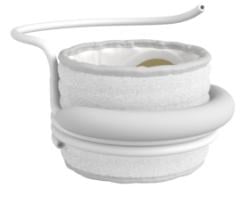
 December 24, 2025
December 24, 2025 



